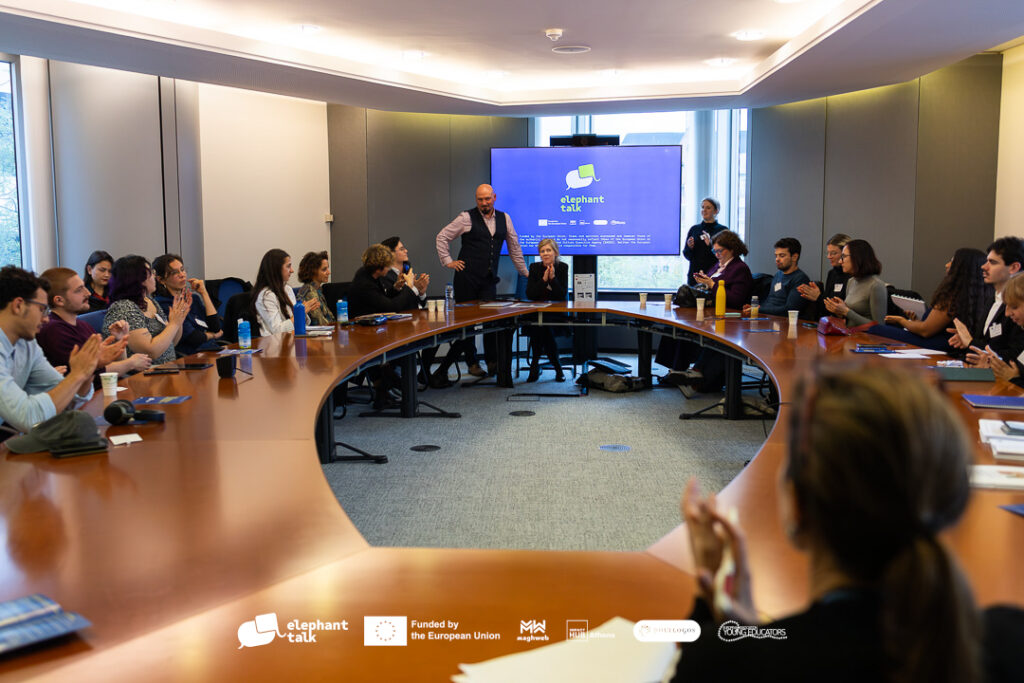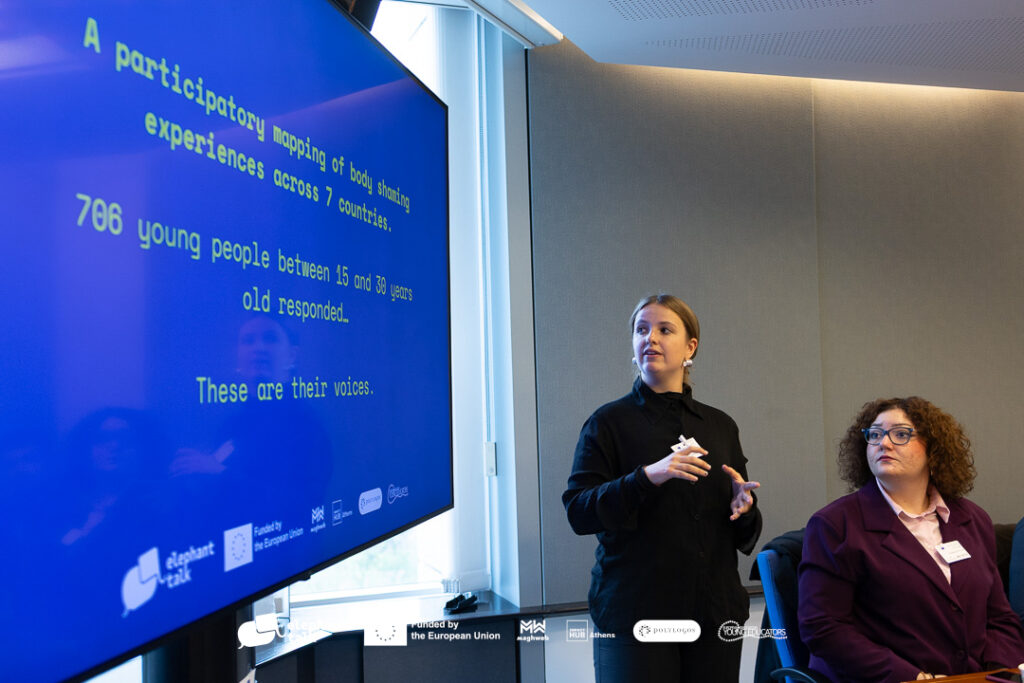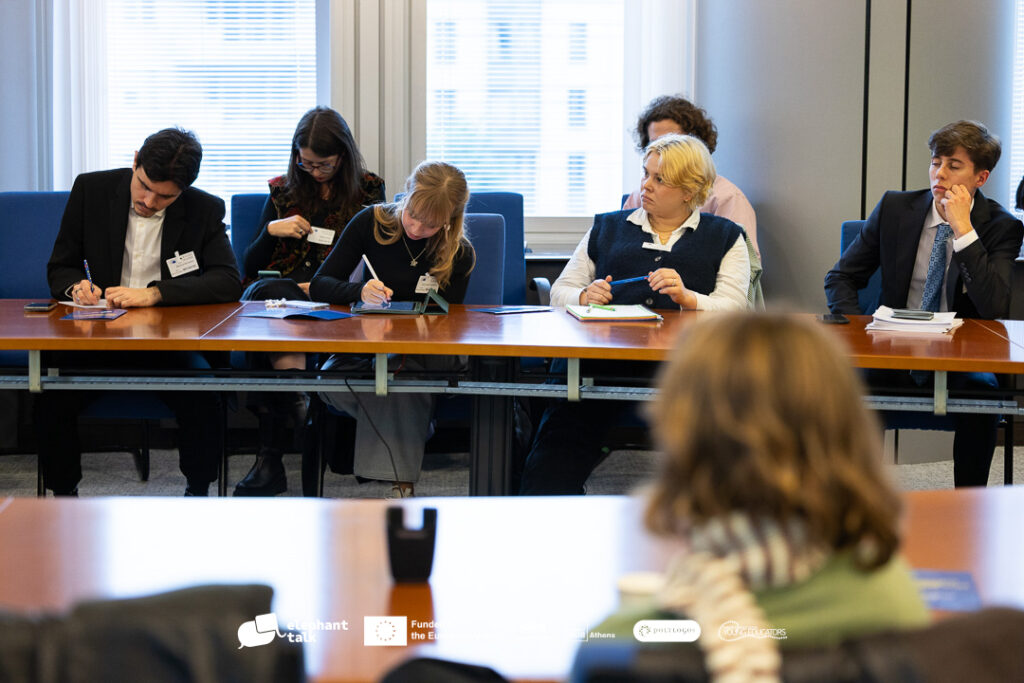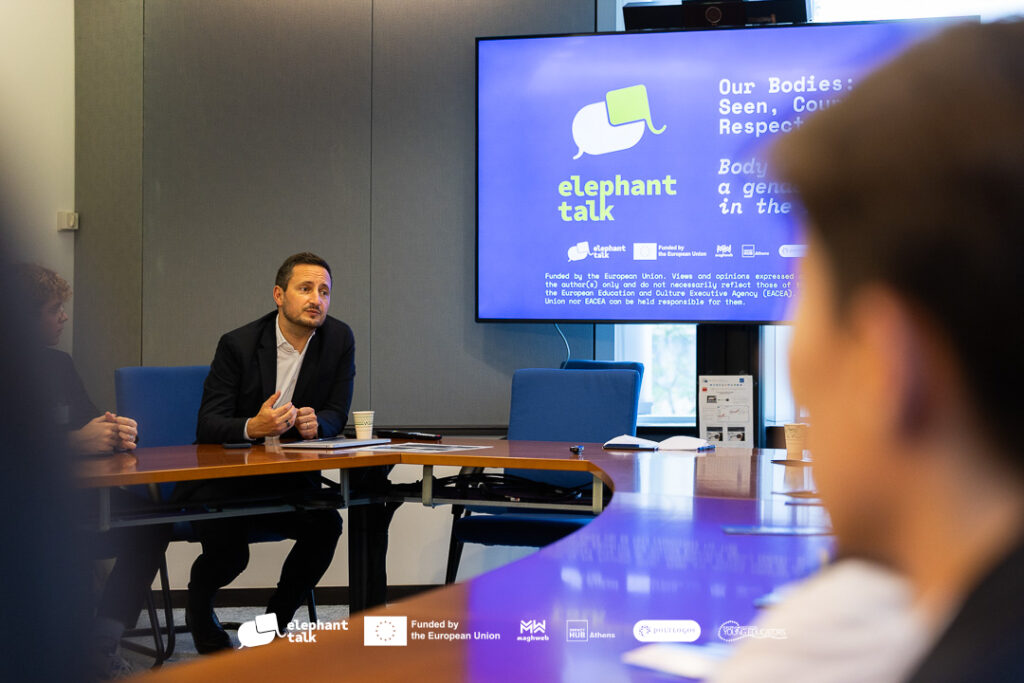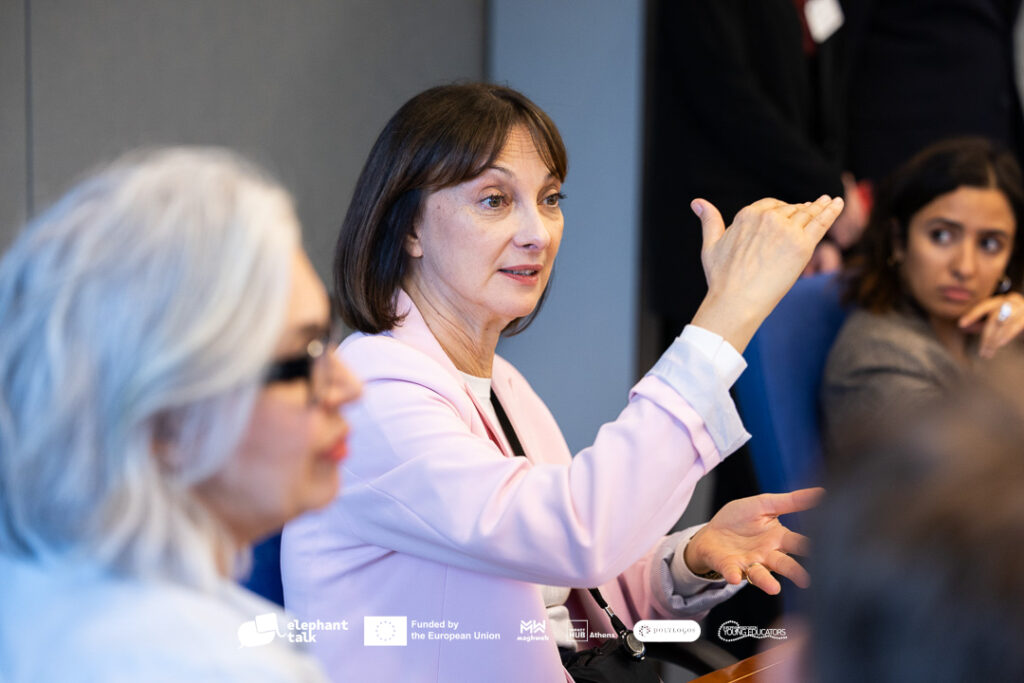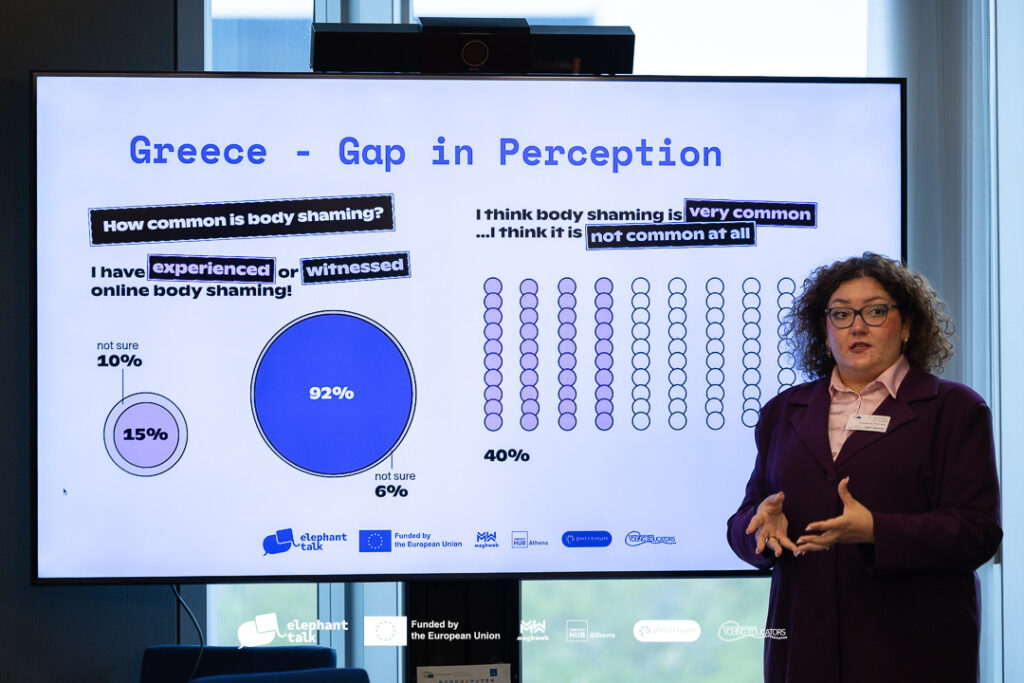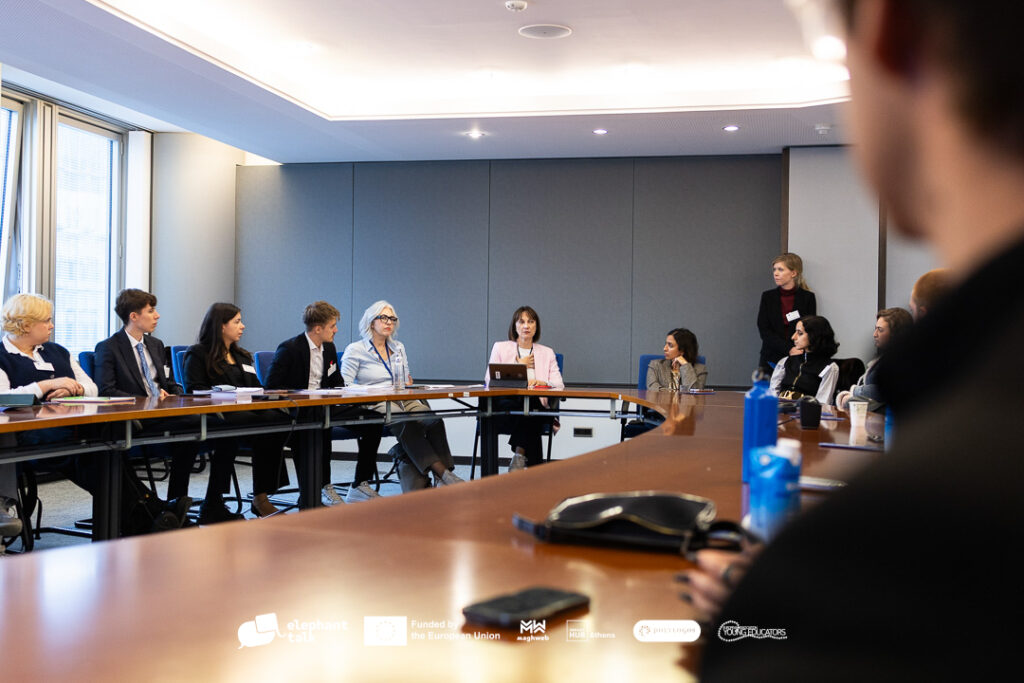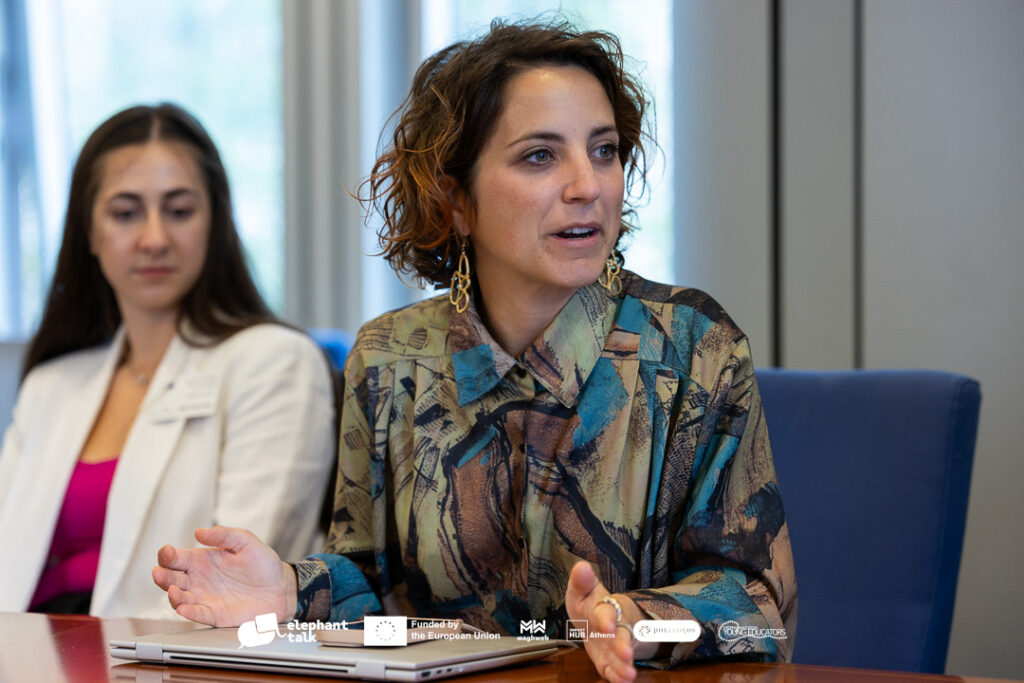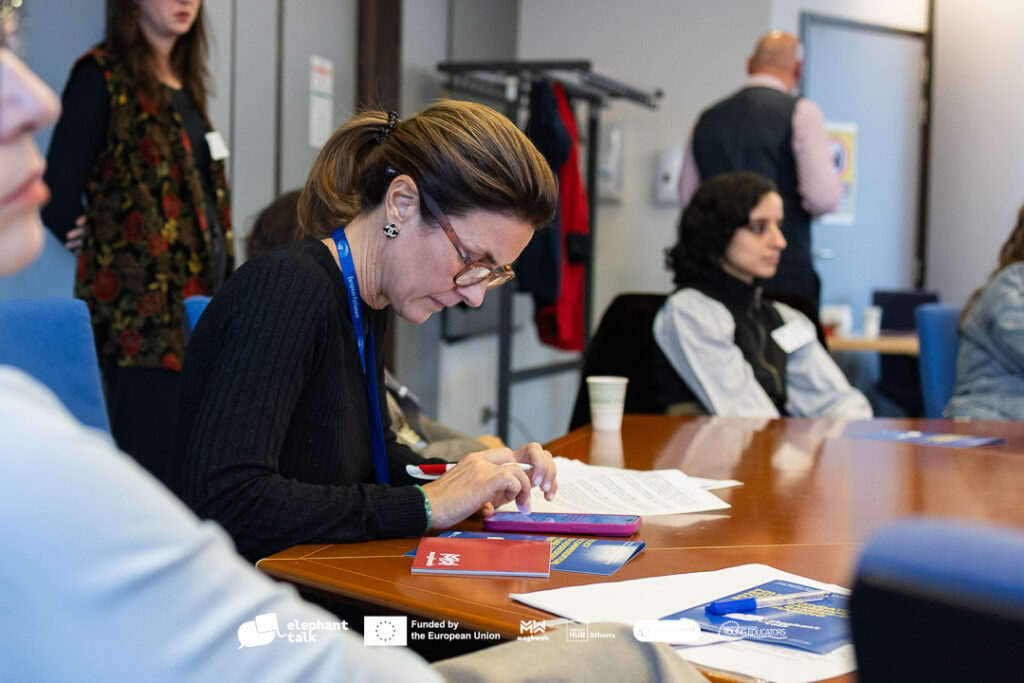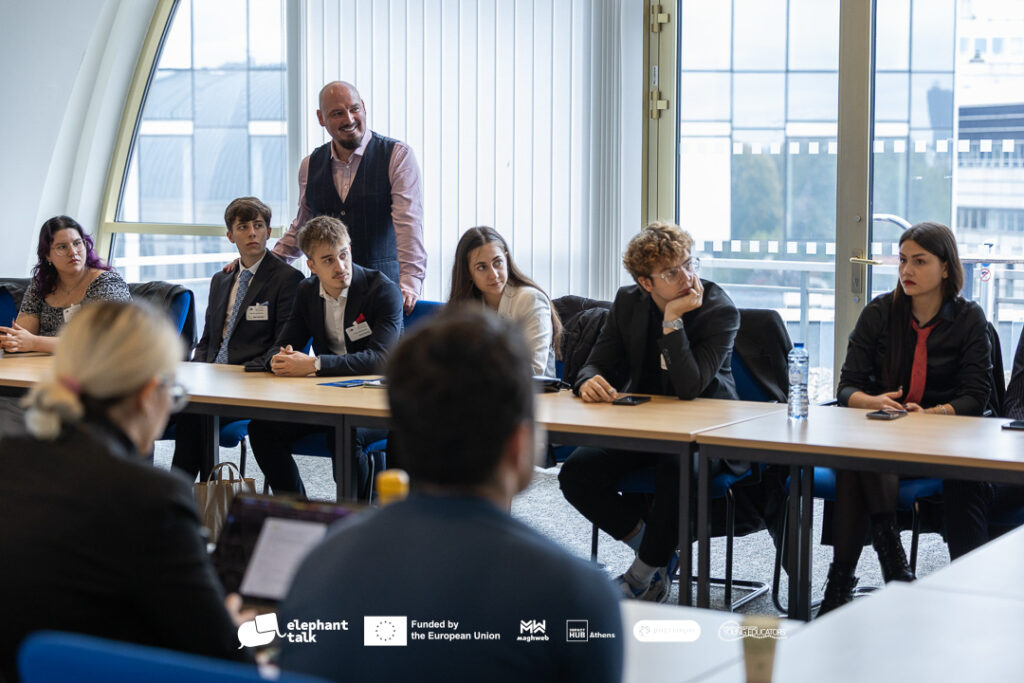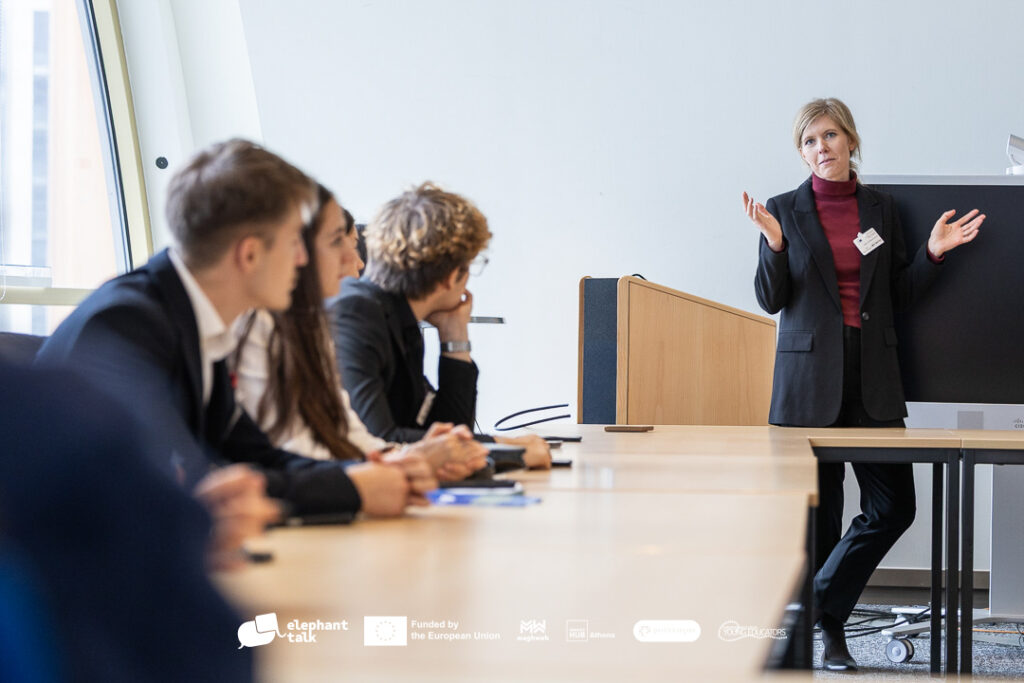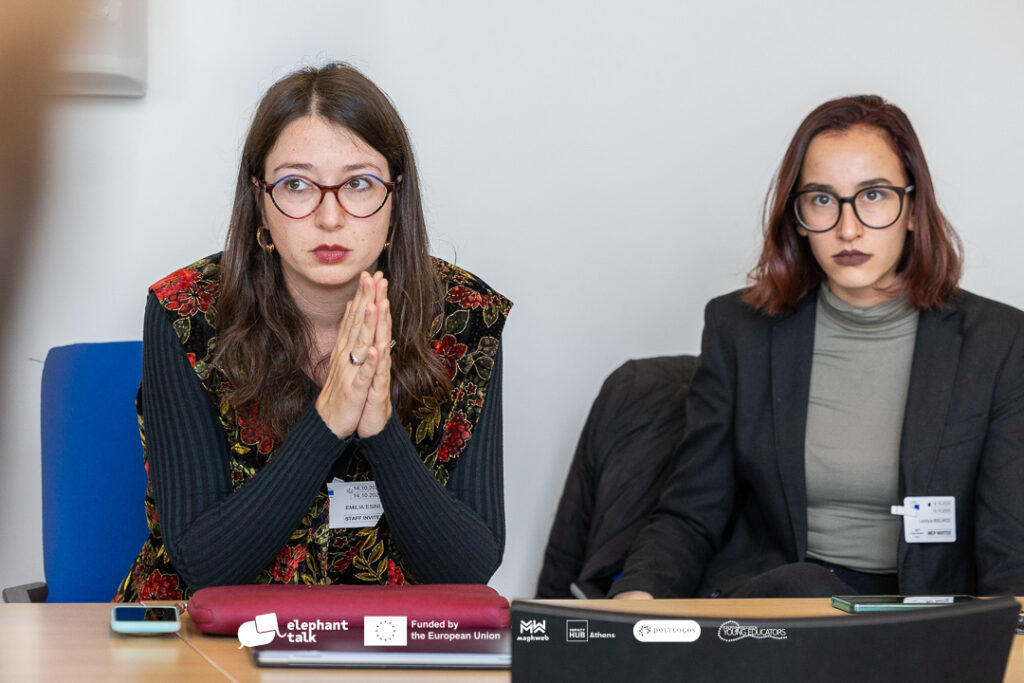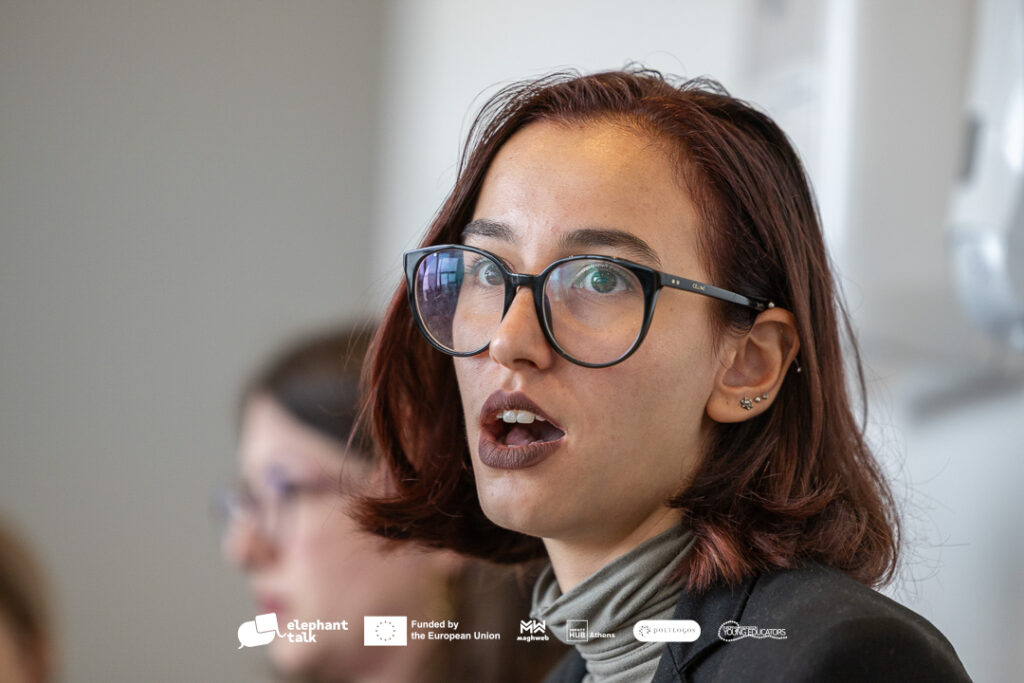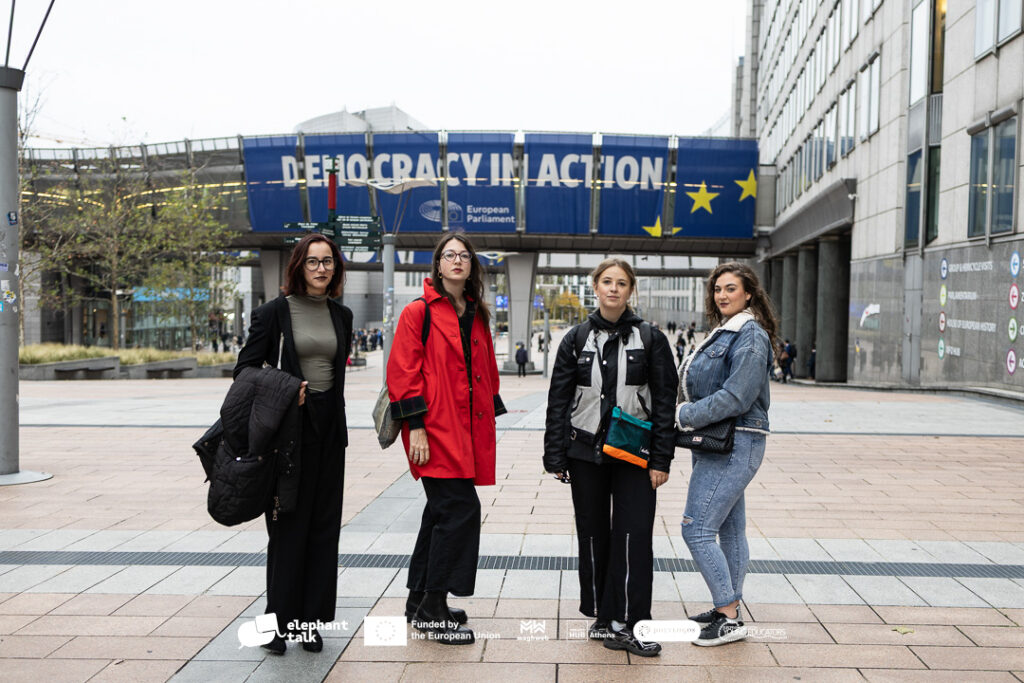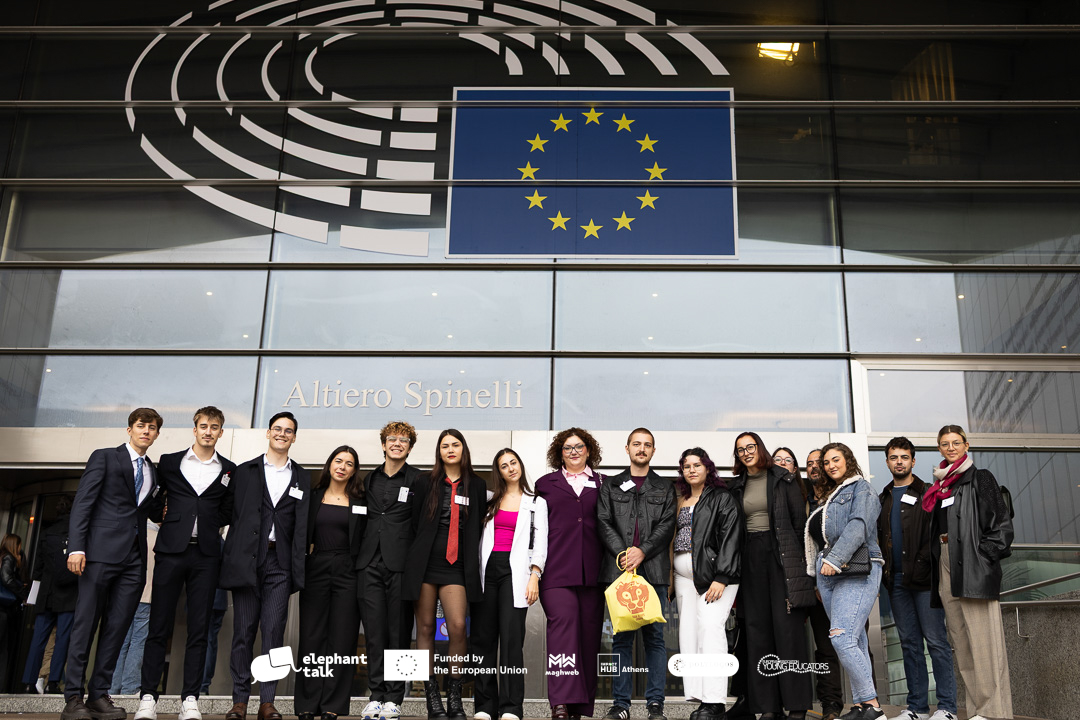On 14 October 2025, youth voices from across Europe took centre stage at the European Parliament in Brussels during the final data presentation event of the Elephant Talk project. This milestone marked the culmination of a year-long outreach and dialogue process led by Polylogos (Romania), in collaboration with Maghweb (Italy, project coordinator), Young Educators (Portugal), and Impact Hub (Greece).
Since October 2024, consortium partners have worked closely with Members of the European Parliament (MEPs) from their respective countries, building relationships and laying the groundwork for a truly participatory policy conversation. The result: a powerful event that brought together young people, youth workers, MEPs, advisors, and local NGOs to confront one of the most urgent and untapped challenges of our digital age – online gender-based hate speech and body shaming.
Online Gender-Based Hate Speech is a Structural, European and Global Challenge
The event gathered 30 official participants, including delegations of young people from Italy, Portugal, Greece, and Romania, as well as youth workers, five MEPs and their teams, and civil society representatives from Belgium. Two participants from Iraq and Algeria also joined, bringing a valuable global perspective to the conversation.
Held inside the European Parliament, the event gave symbolic and practical weight to the issue, underscoring that online gender-based violence is not only a personal or national concern – it is a structural, European, and global challenge.
Highlights from the Event
One of the most powerful aspects of the day was the youth-led presentation of national findings from the Elephant Talk survey. Far from simply reporting data, each youth delegation shared personal reflections, posed critical questions, and grounded the statistics in lived experience.
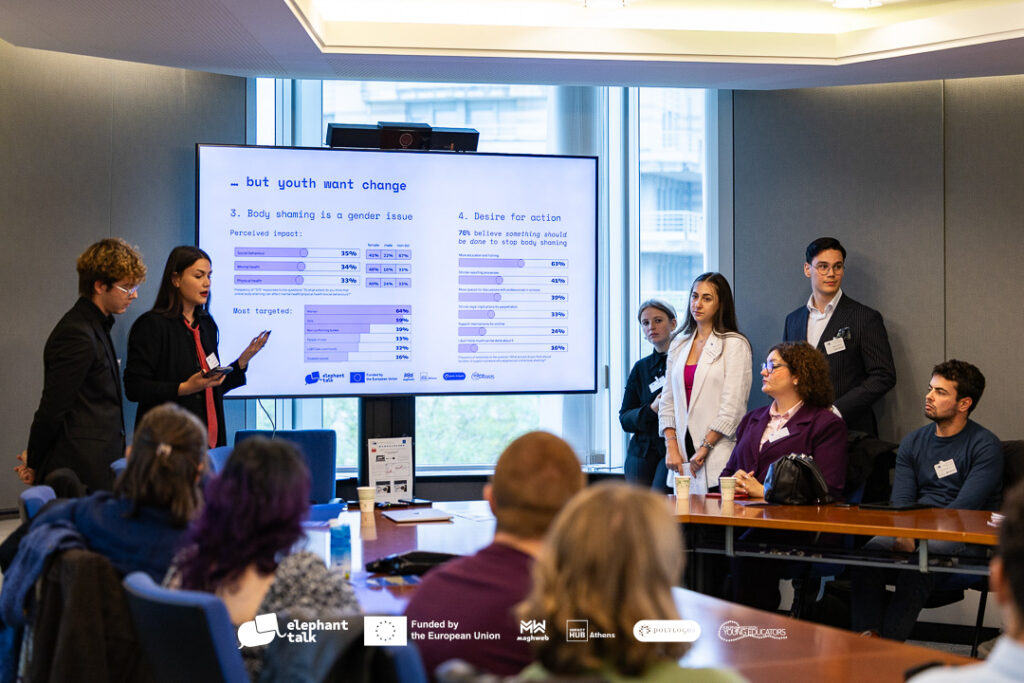
The engagement of five MEPs and their advisors created a rare opportunity for young people to speak directly with institutional decision-makers. The active listening and thoughtful responses from the MEPs validated the participants’ experiences and opened the door to future collaboration.
Having the event hosted within the European Parliament held important symbolic value, and allowed youth to experience democratic engagement in action, within one of Europe’s most influential institutions.
Finally, the inclusion of NGO representatives and participants from within and outside the EU helped to broaden the dialogue, underscoring the global nature of online gender-based hate and the need for solidarity across borders.
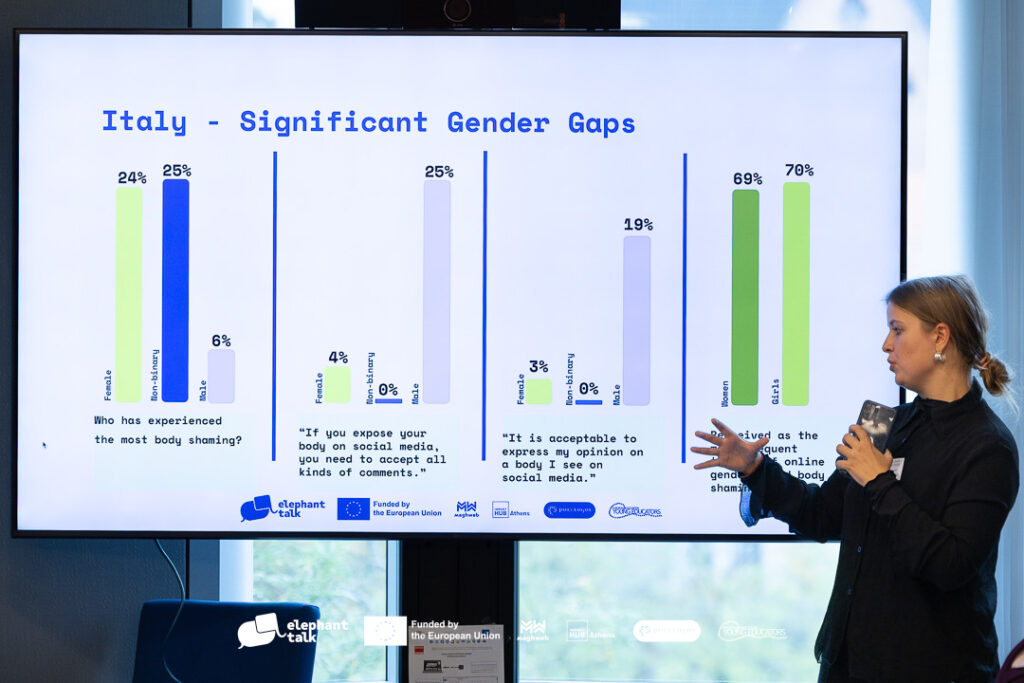
Reflections: What We Learned
Following the event, the consortium team met for a thorough debrief and identified several key reflections:
- Empowerment as a core outcome:
The clearest and most impactful result was the sense of empowerment felt by the youth participants. The opportunity to speak in an institutional setting – and to be heard – was described as transformative, building confidence, civic engagement, and a deeper sense of belonging in European democratic life. - Limits to immediate policy change:
While the event successfully engaged several Members of the European Parliament, the team recognised that turning dialogue into concrete policy outcomes is inherently complex. Even highly committed MEPs operate within institutional constraints, and the EU policymaking process is often slow, multi-layered, and consensus-driven. Nonetheless, the event marked an important step forward by bringing the issue of online gender-based hate- still largely absent from formal EU policy debates – onto the radar of relevant parliamentary committees, particularly CULT and FEMM. This initial visibility offers a foundation for future policy engagement, and sparks hope that the insights shared by young people will inform upcoming strategies and legislative efforts at the European level. - The importance of youth exchange:
Participants and team members alike highlighted the value of intercultural exchange and peer learning. Time constraints limited these interactions, but the appetite was clear: future projects should create more intentional and extended spaces for youth dialogue, trust-building, and co-creation.
“One of the most valuable results was the active participation of the young people and the space created for them to express their experiences. I would have given them more space to interact, but we had very little time. It’s definitely something we could do differently next time.”
– Team member reflection
Looking Ahead: Recommendations and Next Steps
As the Elephant Talk project moves into its final phase, several strategic follow-up priorities have emerged:
- Build on the data collected by refining and expanding the survey, exploring qualitative methods, and transforming insights into educational and advocacy tools.
- Deepen local partnerships, especially with youth organisations and digital rights actors and decision-makers who can carry the work forward on the ground.
- Engage strategically with policymakers, focusing on MEPs as well as local and national-level decision-makers who can champion the issue and serve in an advisory role over time.
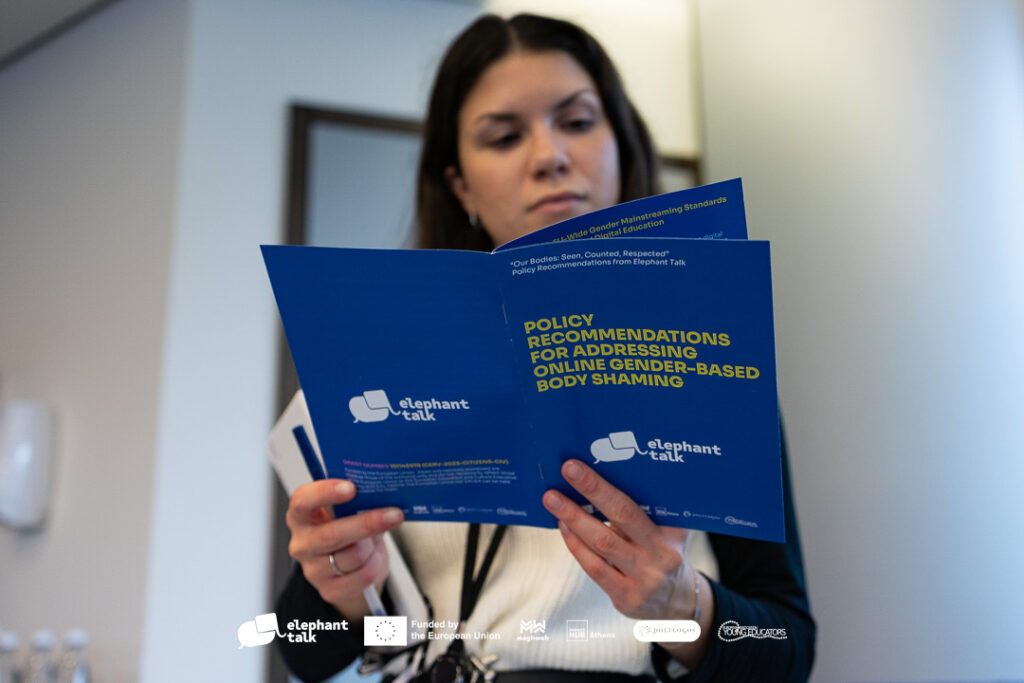
Some Conclusions
The Elephant Talk event in Brussels demonstrated that when young people are given the platform and support to speak, they show up with insight, courage, and clarity. While systemic change takes time, this event laid important groundwork, by amplifying youth voices and weaving them into the fabric of European-level dialogue on digital rights, inclusion, and safety.
As we look to the future, Polylogos and the Elephant Talk consortium remain committed to ensuring that young people are not only consulted, but included as co-creators of the solutions needed to build safer, more inclusive digital spaces for all.
